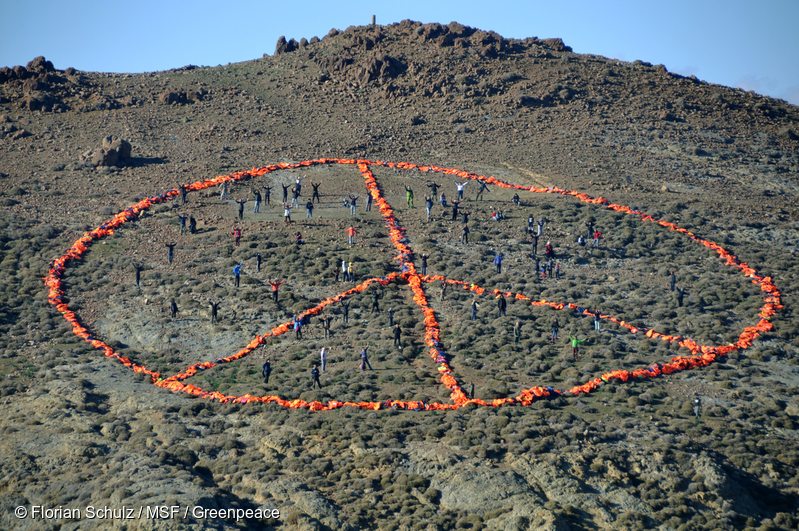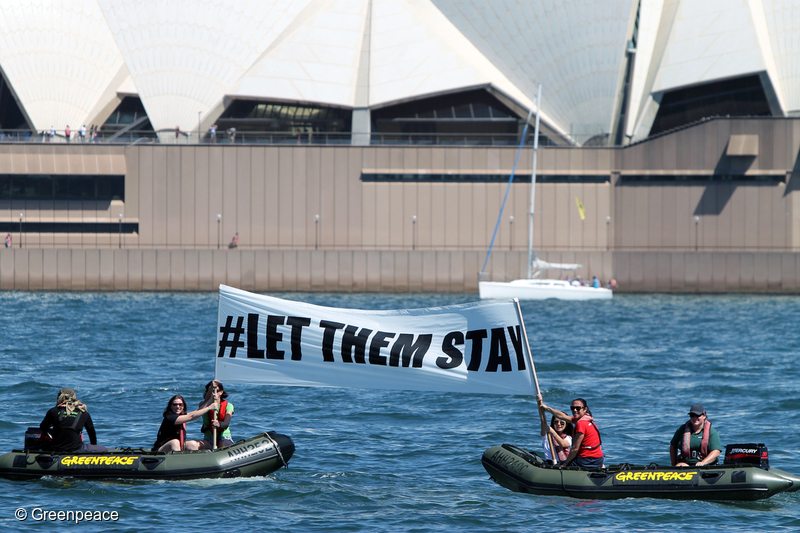Across the world, around sixty million human beings are currently displaced from their homes. It is a number so enormous it is hard to visualise, but it is as if roughly the entire population of the UK was violently tipped out on to the roads and oceans of the world.
The loss of humanity from some of the largest source countries is staggering. Around half the pre-war population of Syria (11 million people) are either dead or have had to flee. Worldwide, during 2014, an average of 42,500 individuals were forced from their homes every day.
The current figures are an historic high, constituting the worst refugee crisis since the end of the Second World War. In addition to being a humanitarian calamity, mass cross-border movement is politically volatile, creating risks and opportunities across the ideological spectrum. Within the environmental movement, the question of refugees can seem oblique; there is deep general sympathy, but it is fair to say the fate of displaced people has not been a traditional focus. However, when you look at both root causes and practical politics, crucial commonalities and linkages start to emerge.
Here are seven reasons to start thinking about the environment and the refugee crisis as intrinsically linked:
1. Because moral responsibility
Environmentalism stems from an ethic of care and stewardship – and that includes people. Nature is vulnerable and does not have a political voice; refugees are similarly susceptible to the abuses of power. Our sense of obligation and duty to the natural world must include empathy for our fellow human beings.
2. Because hatred and fear begets pollution
Stirring up hatred towards refugees galvanizes a politics that is inimical to progress on climate and environmental issues. Elements on the far right that are opposed to action on climate change and other mainstream environmental issues are using the refugee crisis to build popularity through a politics of scapegoating and fear-mongering. As a matter of political logic, it is in the interests of environmentalists to secure just and lasting solutions to the refugee crisis to create the political space and culture most favourable to progress on other issues.
3. Because good governance is essential
Effective environmental action is ultimately contingent on stable and orderly public administration. At the level of global governance, both environmental and human rights issues would radically benefit from a renewed normative climate of enthusiastic state compliance with international instruments and commitments. Supporting the ideal of good governance – of adherence to agreed global rules, as well as an active will to improve the world system where it is lacking – brings benefits across issues.
4. Because ideology and power
Environmental crime and mistreatment of vulnerable displaced people are products of the same actually existing system. In global terms, it is the current paradigm of neoliberalism blended with neo-conservatism, yoked to entrenched crony capitalism that is yielding both injustice and rapid environmental degradation on a planetary scale. Yes, there are complexities; people who hold neoliberal views may favour complete freedom of movement or advocate for action on climate for example. But taken as a whole, there is no doubt that the current world system is deeply maladjusted. The need for ideas and politics opposed to the status quo, with an ethic of care for people and planet at their core, is chronic and urgent.
5. Because justice and sustainability are mutually supportive
Not only do they stem from a common wellspring, environmentalism and justice are also mutually supporting in practice. The rights of people and communities and the conservation of the natural world necessarily upheld together. Opponents of environmental action have long tried to claim that it is people or the planet. In reality to suggest that there is a choice of human rights or preserving the natural world is a politically mischievous false binary. An earth capable of nurturing life in all its diversity must be both just and sustainable.
6. Because Root Causes
The origins of mass human displacement and environmental disaster are deeply entwined. At a structural level, one can only imagine how much the prospects of peace in some regions will be increased when the age of fossil fuels is over. Eliminate the world’s reliance on oil and you take a huge step towards reducing global greenhouse gas emissions and geopolitical competition and pressure within the Middle East. In the particular context of climate change, a just global response to the issue must include enabling migration with dignity for affected populations.
7. Because what do your guts say?
 In my home currently country of Australia the national government is threatening to return 267 men, women and children to indefinite and cruel arbitrary detention on the island country of Nauru. In one recent instance a large crowd gathered outside a hospital in Brisbane to stop the Australian government deporting a baby to arbitrary detention. In these circumstances, it is no surprise that Australia environmental activists are also taking their place within the growing ranks of the community-based #LetThemStay movement.
In my home currently country of Australia the national government is threatening to return 267 men, women and children to indefinite and cruel arbitrary detention on the island country of Nauru. In one recent instance a large crowd gathered outside a hospital in Brisbane to stop the Australian government deporting a baby to arbitrary detention. In these circumstances, it is no surprise that Australia environmental activists are also taking their place within the growing ranks of the community-based #LetThemStay movement.
It is true that no one person or organization can effectively take on every issue, or work on every worthy cause; but such is the scale and nature of the global crisis of displaced people that the relationship between environmental advocacy and the protection of human rights in the context of people seeking refuge is impossible to ignore. Silver threads of conscience and steel links of politics connect the fate of boatloads of desperate people with burning forests, emptying oceans and a warming world.
Also published in Global Policy 14/03/2016


